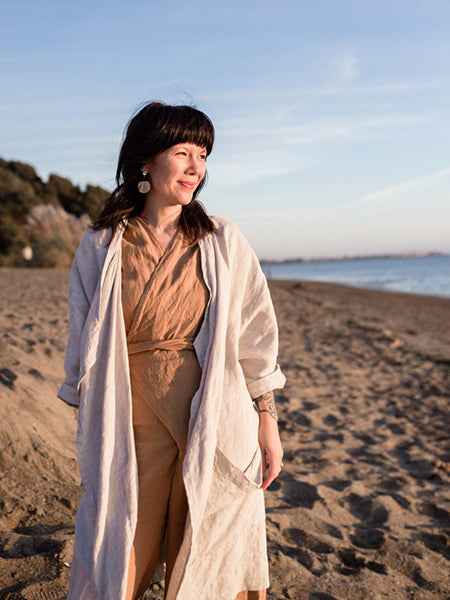Earth Month is a time for reflection, collective action, and change. In amongst it all though, it’s difficult not to wonder whether our individual actions, opinions, and voices, really matter. If you’ve been having the same thoughts, you’re not alone.
It’s easy to feel powerless or lose hope. After all, it is seismic, systemic, political, and institutional change that will make the real difference in the fight against climate change. And however much we call for action, do they (political actors, major polluters, world leaders, and so on) really even hear us? This is a divisive topic, but here at Consciously, we want to empower our community and inspire hope. That’s why this article is all about why our individual actions really do matter.
Individual Actions + Collective Power in Climate Action
Thinking about climate change can be an overwhelming source of anxiety for many people, especially when we’re grappling with it alone. Just remember, that although we’re all doing the best we can as individuals, we’re doing so as part of a bigger collective. Climate activism isn’t actually about lone individuals; it’s about fostering partnerships and collaboration. Change won’t come from one person, but from a cross-section of global businesses, leadership, and citizens.
You don’t have to think of yourself as an ‘activist’ to take part in the climate action community. Casting your vote for the green candidate, attending a climate rally, or talking casually to your friends about sustainable choices are all ways of contributing our individual voices to collective action.
Small Actions, Big Influence
Making small changes in our lifestyles, shopping habits, or diet can feel insignificant compared to the real shifts in government policy, key climate legislation, and transitions to green energy that we really need. However, our lifestyles really do have a substantial effect on our planet: two-thirds of global greenhouse gas emissions are linked to private households. We hold immense power in our choices.
And it’s not just about the direct impact of your actions, but the wider resonance they have within your community. Using your voice, embodying your beliefs in your actions, and leveraging your buying power are all ways of using your influence to effect change (however big or small). As Al Gore puts it, “Use your voice, use your vote, use your choice.”
For example, proactively reducing your consumption and making a concerted effort to shop sustainably is likely to have a wider impact beyond your own closet. You may find your friends and family start to shift their buying habits, choosing the sustainable brands you recommend over fast fashion alternatives. On a bigger scale, as a consumer you’re also showing the fashion industry what you value and what you’re looking for. And it’s already working. BCG found that ‘consumer-savvy’ companies are starting to take sustainability seriously in response to consumer pressure.
It really does work, even in high-end fashion. A few years ago, iconic fashion houses like Gucci and Michael Kors publically announced a commitment to more ethical fashion practices. Following suit, Maison Margiela joined Calvin Klein, Stella McCartney, Vivienne Westwood, and Tommy Hilfiger in renouncing fur from their collections. Other big names followed closely behind, proving that pushing for more sustainable fashion isn’t impossible.
Acknowledge + Use Our Privilege
For those of us in the Global North, taking the time to educate ourselves about our privilege and position within the climate conversation is a small but significant step we can take. For those of us that enjoy what Oxfam calls ‘carbon privilege’, it’s important to make space for and platform marginalized voices and stories.
Why? Because the climate conversation is not balanced. Though the world’s richest 10% of people were responsible for over half of the carbon emitted between 1990 and 2015, it is those in the Global South that are at the frontline of climate change.
Recognizing and speaking up about the intersectional nature of the climate crisis is a critical first step to starting wider conversations around what a ‘green transition’ should really look like.
Strive To Be Imperfectly Sustainable
It’s not about holding yourself to an impossible standard of faultless sustainability. Striving to be imperfectly sustainable is ok too. It’s about aligning the way you live your life with your values as far as possible. If you’re doing your best to make shifts towards a more sustainable way of living - that matters.
Don’t Underestimate Your Own Power
The Count Us In campaign estimates that if 1 billion people take practical action in their own lives, this could cut up to 20% of global carbon emissions. There’s no single way to ‘green’ your life. If you’re at the beginning of your sustainability journey, it’s about making small changes where you can. As we’ve said, even having those important climate conversations with those close to you is a powerful form of activism. The biggest shift though, is to remember you possess real power and that you’re not alone.




Leave a comment
All comments are moderated before being published.
This site is protected by hCaptcha and the hCaptcha Privacy Policy and Terms of Service apply.